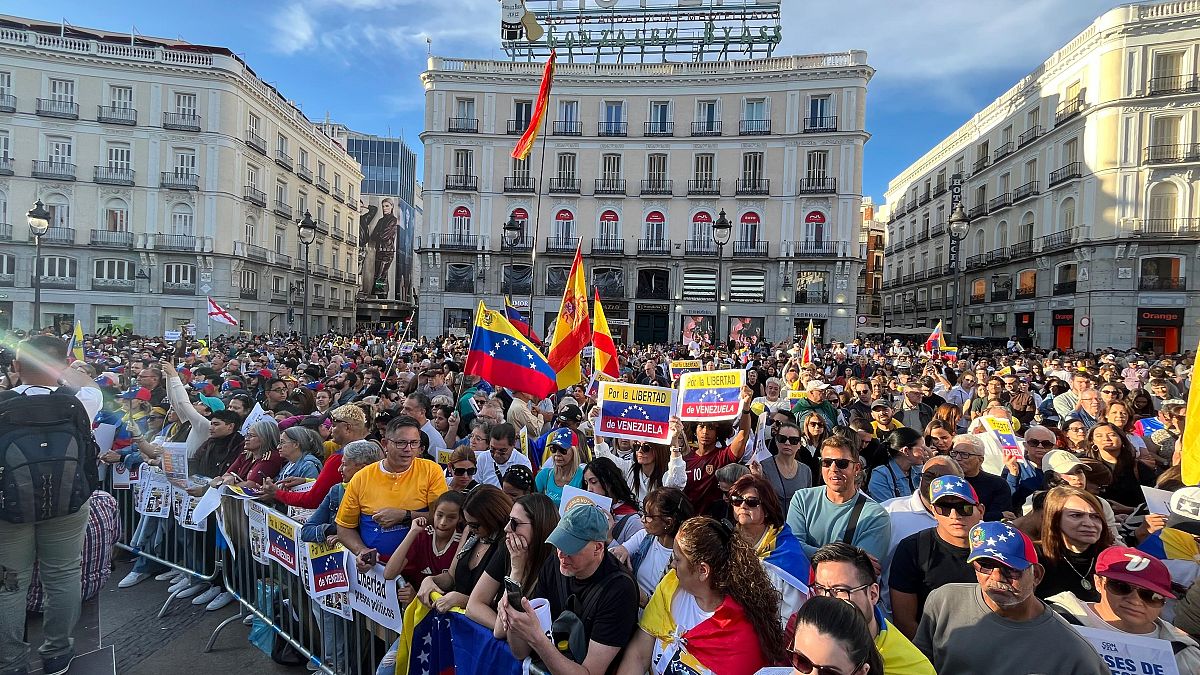Protests for democracy in Venezuela and the recognition of Edmundo González Urrutia as president-elect have gained momentum globally, with demonstrations taking place in various capitals worldwide. The United States, the Spanish Congress and Senate, and the European Parliament have already declared their support for González Urrutia, rejecting Nicolás Maduro’s election win in July due to allegations of electoral fraud. In Madrid, the Spanish capital home to around 70,000 Venezuelans, a large demonstration was held at Puerta del Sol, where exiled opposition leaders and families of political prisoners gathered to demand democracy and an end to repression and violence.
The former mayor of Caracas, Antonio Ledezma, emphasized the need for Venezuelans, regardless of their location, to resist the dictatorship’s oppression. He highlighted the importance of each individual’s contribution to the fight against the Maduro government’s crackdown on dissent. Families of political prisoners, such as the son of María Corina Machado’s lawyer, Perkins Rocha, also participated in the demonstration, shedding light on the plight of more than 1,800 political prisoners in Venezuela. The protest in Madrid echoed the sentiment of defiance and determination, with chants of “se ve se siente, Edmundo presidente” filling Puerta del Sol as banners and Venezuelan flags adorned the crowd.
The official proclamation of the protest aimed to commemorate and defend the victory achieved through democratic means in Venezuela. The primary elections held on October 22, proposed by the Unitary Platform and organized by united political parties and civil society, marked a significant milestone in the fight for democracy in the country. Venezuelans came together in solidarity behind María Corina Machado’s leadership, committed to liberating their nation from the grips of tyranny. The demonstration in Madrid, as well as protests in South American capitals and around the world, underscored the global call for democratic reforms and political change in Venezuela.
While the main demonstrations predominantly took place in Madrid and South American capitals, the global protest movement extended to other regions, including Japan and Brussels. The widespread support for the Venezuelan opposition’s quest for democracy reflects the international community’s solidarity with the Venezuelan people in their struggle against authoritarian rule. The voices of thousands of protesters resonated across the globe, united in their demand for free and fair elections, government accountability, and respect for human rights. The protests serve as a stark reminder of the power of collective action and grassroots movements in advocating for political change and social justice.
In conclusion, the protests for democracy in Venezuela and the recognition of Edmundo González Urrutia as president-elect have galvanized support from nations worldwide, with demonstrations held in various capitals to demand political reforms and an end to repression. The show of solidarity for the Venezuelan opposition’s quest for democracy underscores the universal values of freedom, democracy, and human rights upheld by the global community. As Venezuelans continue to strive for political change and accountability in their country, the international support and visibility garnered through protests serve as a powerful catalyst for advancing democratic governance and upholding the rule of law. The collective voices raised in protest against authoritarianism exemplify the resilience and determination of individuals and communities in advocating for a more just and equitable society.










